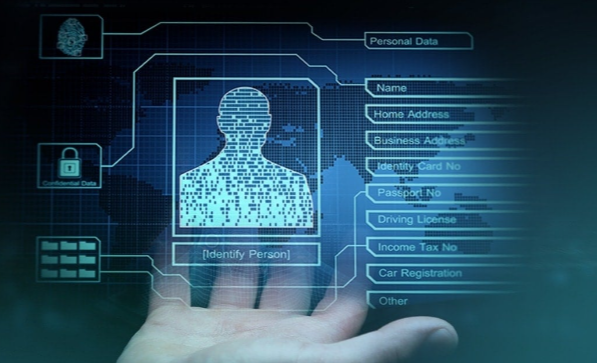In an era of digital innovation, the landscape of government services is undergoing a profound transformation. Did you know that the global e-government market is projected to reach $155.6 billion by 2025? This blog embarks on an exploration of the dynamic synergy between government services and online document verification, which has become the linchpin of the digital revolution. As governments worldwide harness the power of technology to serve citizens more efficiently, online document verification emerges as a catalyst for this transformation. We delve into the exciting journey of how this digital revolution is shaping public services, enhancing security, and fostering trust in government interactions, setting the stage for a future where bureaucracy meets cutting-edge efficiency.
Digital Transformation of Government Services
The digital transformation of government services signifies a monumental shift in how citizens and governments interact. It’s about simplifying bureaucracy, improving accessibility, and enhancing efficiency. Governments worldwide are leveraging technology to offer a myriad of services online. Whether it’s applying for permits, paying taxes, or accessing vital records, citizens can now do it with just a few clicks. This transition not only saves time and resources but also reduces the environmental footprint of paperwork. In an increasingly interconnected world, digital government services are empowering citizens, fostering transparency, and reshaping the way we envision and experience public administration.
Enhancing Government Transactions with Online Verification
How can we enhance government transactions, making them more accessible and secure? Online verification methods hold the key. In an age where nearly 60% of the world’s population uses the internet, online verification simplifies access to government services, enabling citizens to complete transactions conveniently. As fraud and identity theft incidents surge, these methods reinforce the security of government transactions, instilling trust between citizens and their governments. Furthermore, they streamline administrative processes, making transactions efficient and cost-effective. In a global context where modernization of public services is a prevalent trend, online verification stands as a beacon, offering secure, efficient, and accessible government transactions for citizens.
See Also Learn All About 5120x1440p 329 Total War Rome 2 Wallpapers
Benefits of Online Document Verification for Public Services
Online document verification has become a cornerstone in enhancing public services, offering a multitude of advantages:
Efficiency: Streamlining document verification processes reduces bureaucratic delays, making services more efficient.
Accessibility: Citizens can access and complete transactions online, eliminating geographical and time barriers.
Cost Savings: Online verification reduces administrative costs associated with paper-based processes.
Data Security: Rigorous security measures safeguard sensitive information, protecting citizens from identity theft and fraud.
Accuracy: Automated verification processes minimize human errors, ensuring the accuracy of data.
Transparency: Online verification fosters transparency in government operations, building trust with citizens.
Environmental Impact: The reduction in paperwork contributes to a greener, more sustainable approach.
Global Reach: Governments worldwide are adopting online verification, aligning with a global trend toward digitalization.
User-Friendly: User interfaces are designed to be intuitive, ensuring citizens can easily navigate the online verification process.
Time Savings: Reduced processing times for document verification mean quicker access to services for citizens.
In an era where digital transformation is the norm, online document verification offers a myriad of benefits that enhance public services, making them more accessible, efficient, and secure. This not only saves time and resources but also contributes to a more transparent and citizen-friendly government.
Ensuring Data Security in Government Transactions
When it comes to government transactions, safeguarding sensitive data is paramount. Online document verification plays a vital role in ensuring data security, offering several crucial benefits:
Identity Protection: By verifying the identity of individuals, online verification minimizes the risk of identity theft and impersonation.
Secure Data Transmission: Encryption techniques are employed to protect data during transmission, preventing interception by malicious actors.
Compliance with Regulations: Online verification systems adhere to data protection regulations, ensuring government agencies are compliant with legal standards.
Minimized Data Breaches: Stringent security protocols minimize the risk of data breaches, which can have far-reaching consequences.
Citizen Trust: Data security instills trust in citizens, assuring them that their sensitive information is well-protected.
Fraud Prevention: The authentication of documents and data prevents fraudulent transactions and activities.
Internal Accountability: Online verification provides a clear record of who accessed the data and when, enabling accountability within government agencies.
Secure Transactions: By ensuring the security of data, online verification facilitates secure government transactions, fostering transparency and credibility.
As governments worldwide transition toward digitalization, ensuring data security in government transactions through online document verification becomes a critical element in protecting citizens’ information and maintaining trust between the public and their governments.
Document Verification: A Citizen-Centric Approach
Document verification, when approached with a citizen-centric perspective, prioritizes the needs and expectations of individuals engaging with government services. This approach focuses on making verification processes user-friendly, accessible, and efficient. It places the citizen at the center of the transaction, emphasizing convenience, accuracy, and data security. By tailoring document verification to the citizens’ benefit, it ensures a more positive and trustworthy interaction with government services.
